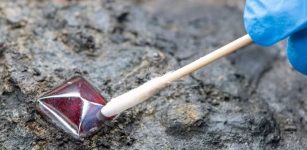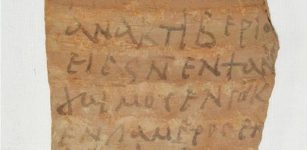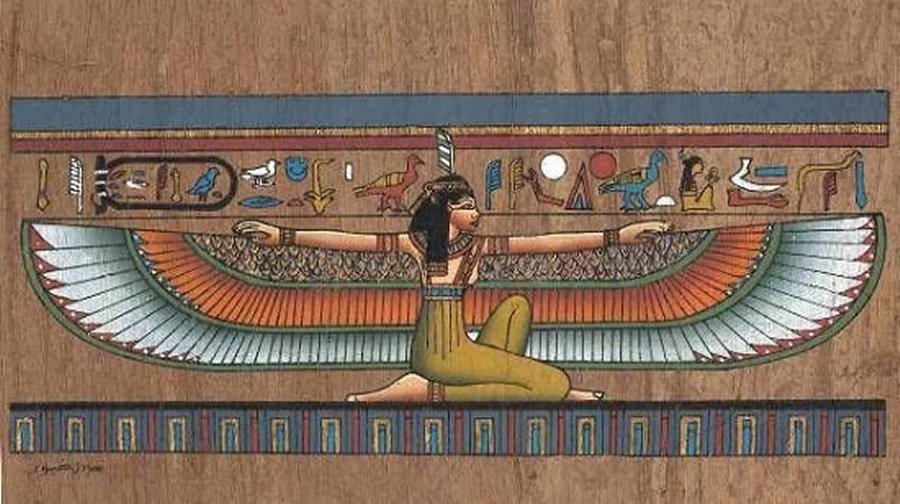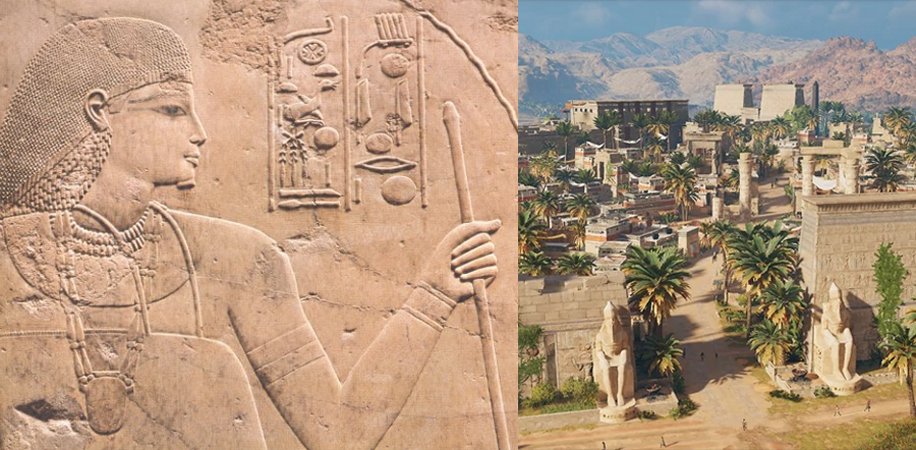Why Did Ancient Egyptians Fear The Vizier?
Ellen Lloyd - AncientPages.com - One would think twice before committing crimes in ancient Egypt. The punishments for breaking the law were severe and, in some cases, fatal.
Ancient Egyptians had many laws, and those who dared to interfere with the Cosmic Order – Maat had to pay a high price, but not with money. No person stood above the law. No one was special and could be allowed to misbehave.
Maat – Ancient Egypt’s Most Important Religious Concept - read more
Powerful nobles and officials could be punished just as quickly as farmers and pyramid builders.
Depending on the type of crime, a person risked drowning, mutilation, decapitation, or being burned alive.
Maat - The Cosmic Order Must Be Maintained
The Pharaoh was responsible for maintaining the Maat System, and this subject we discussed earlier on Ancient Pages.
Maat represented the essential religious concept of the Egyptian view of the world. It was a concept of order in the world that the gods, pharaohs, and ordinary people had to obey.
Maat was the Harmony or Law of the Universe. The lack of Maat and her departure meant an inevitable return to the original chaos (Nu) and the end of the known world.
Every Egyptian was responsible for maintaining the Cosmic Order.
The Vizier Was Respected And Feared
Next, after the Pharaoh, the vizier was the most influential person in ancient Egypt. As the highest state official, the vizier was the immediate subordinate of the king, responsible for legal matters, and thus feared by criminals.
The Pharaoh appointed the vizier, and he was usually one of the king's younger brothers. The duties of the vizier were defined in the Instruction of Rekhmire (Installation of the Vizier), a New Kingdom text.
All other lesser supervisors and officials, such as tax collectors and scribes, would report to the vizier. The vizier supervised Pharaoh's security guards and all soldiers who protected temples and palaces.
Left: Ramose was the Mayor of Thebes and Vizier of Upper Egypt during the later part of the reign of Amenhotep III and the early part of the reign of Amenhotep IV, who later became Akhenaten. - Credit: donf.com - Right: Artistic impression of Thebes - Credit: XOdeyssusx
The vizier was very powerful and appointed judges. The vizier was the one who defined the punishment for a serious crime. The vizier likely consulted the king concerning all difficult decisions. No one could receive a death sentence in ancient Egypt without the Pharaoh's express permission. The vizier was also not allowed to judge an official based on suspicion and charges without hearing his defense.
The worst prison in ancient Egypt was located in Thebes. Known as the Great Prison, this place served as a confinement and labor camp. In his book Duties of the Vizier, author G. P. F. Van Den Boorn writes, "its inmates included convicted criminals, people awaiting execution for capital crimes and corvée laborers." Statute labor is a corvée imposed by a state for public works. The last-mentioned were unpaid workers.
Ancient Egyptians were highly harsh when they discovered someone had interfered with the Maat system. Anyone who broke the law in Egypt feared the vizier, with good reason.
During the Fifth Dynasty (2,500 B.C. – 2,350 B.C.), Egyptian Vizier Ptahhotep, occasionally known as Ptahhotep I, Ptahhotpe, or Ptah-Hotep, wrote several instructions based on his wisdom and experiences.
His precious text contains advice on how to live your life, and much of what he wrote is still highly relevant today.
The Maxims of Ptahhotep influenced later philosophical works, and his work is one of the first Egyptian books.
Written by Ellen Lloyd – AncientPages.com
Updated on December 1, 2023
Copyright © AncientPages.com All rights reserved. This material may not be published, broadcast, rewritten or redistributed in whole or part without the express written permission of AncientPages.com
Expand for referencesMore From Ancient Pages
-
 European Bronze Age Treasure Of Villenna Has Artifacts Made Of Meteoric Iron
Archaeology | Feb 12, 2024
European Bronze Age Treasure Of Villenna Has Artifacts Made Of Meteoric Iron
Archaeology | Feb 12, 2024 -
 Why Did First Printed Books Scare Ancient Scholars In Europe?
Featured Stories | Aug 26, 2025
Why Did First Printed Books Scare Ancient Scholars In Europe?
Featured Stories | Aug 26, 2025 -
 Anglo-Saxon Harpole Treasure Reveals More Secrets – Unique Medieval Silver Cross Found
Archaeology | Jan 31, 2023
Anglo-Saxon Harpole Treasure Reveals More Secrets – Unique Medieval Silver Cross Found
Archaeology | Jan 31, 2023 -
 John Dee’s Magical Mirror Used To Contact Spirits Can Be Traced To The Aztecs
Archaeology | Oct 7, 2021
John Dee’s Magical Mirror Used To Contact Spirits Can Be Traced To The Aztecs
Archaeology | Oct 7, 2021 -
 Yokai Amabie – Protective Ancient Spirit That Can Ward Off Epidemics
Featured Stories | Mar 30, 2020
Yokai Amabie – Protective Ancient Spirit That Can Ward Off Epidemics
Featured Stories | Mar 30, 2020 -
 Mesoamerican Rubber Ball Game Tradition Existed Earlier Than Thought
Ancient Traditions And Customs | Mar 17, 2020
Mesoamerican Rubber Ball Game Tradition Existed Earlier Than Thought
Ancient Traditions And Customs | Mar 17, 2020 -
 Knights Templar’s Legendary Sword In Stone In Terminillo Mysteriously Disappeared – Where Is It Hidden?
Featured Stories | May 3, 2021
Knights Templar’s Legendary Sword In Stone In Terminillo Mysteriously Disappeared – Where Is It Hidden?
Featured Stories | May 3, 2021 -
 Ancient Maya Astronomers Predicted Meteor Showers 2 Millennia Ago – Mayan Hieroglyphic Inscriptions Reveal
Archaeology | Sep 12, 2017
Ancient Maya Astronomers Predicted Meteor Showers 2 Millennia Ago – Mayan Hieroglyphic Inscriptions Reveal
Archaeology | Sep 12, 2017 -
 St. Simeon’s Monastery And History Of Its Founder Shed Light On Christian Past In Anatolia
Archaeology | Nov 28, 2020
St. Simeon’s Monastery And History Of Its Founder Shed Light On Christian Past In Anatolia
Archaeology | Nov 28, 2020 -
 Rare Discovery Of More Than 18,000 Inscribed Pot Sherds Document Life In Ancient Egypt
Archaeology | Jan 31, 2022
Rare Discovery Of More Than 18,000 Inscribed Pot Sherds Document Life In Ancient Egypt
Archaeology | Jan 31, 2022 -
 Legend Of Tarenyawagon Who Came From The Heavens And Ascended To The Stars In His Fast Flying Shining Canoe
Ancient Mysteries | Feb 25, 2019
Legend Of Tarenyawagon Who Came From The Heavens And Ascended To The Stars In His Fast Flying Shining Canoe
Ancient Mysteries | Feb 25, 2019 -
 Will-o’-the-wisp: Eerie Lights Over Swamps And Marshes That Frightened And Led People Astray
Featured Stories | Apr 23, 2020
Will-o’-the-wisp: Eerie Lights Over Swamps And Marshes That Frightened And Led People Astray
Featured Stories | Apr 23, 2020 -
 Is Mysterious Herlaugshaugen The Ship Burial Of Viking King Herlaug?
Archaeology | Jul 11, 2023
Is Mysterious Herlaugshaugen The Ship Burial Of Viking King Herlaug?
Archaeology | Jul 11, 2023 -
 On This Day In History: Sweden’s Greatest Defeat: Battle Of Kirchholm Was Fought – On Sep 27, 1605
News | Sep 27, 2016
On This Day In History: Sweden’s Greatest Defeat: Battle Of Kirchholm Was Fought – On Sep 27, 1605
News | Sep 27, 2016 -
 Completely Intact 2,000-Year-Old ‘Chocolatier Style’ Pot Discovered In Mexican Cave
Archaeology | Jul 30, 2022
Completely Intact 2,000-Year-Old ‘Chocolatier Style’ Pot Discovered In Mexican Cave
Archaeology | Jul 30, 2022 -
 Treasure Trove Of Spices Found On The Sunken Medieval Ship Gribshunden
Archaeology | Feb 11, 2023
Treasure Trove Of Spices Found On The Sunken Medieval Ship Gribshunden
Archaeology | Feb 11, 2023 -
 Angkor Wat: Pre-Industrial City’s Downfall And Climate Change
Archaeology | Apr 18, 2020
Angkor Wat: Pre-Industrial City’s Downfall And Climate Change
Archaeology | Apr 18, 2020 -
 What Is The Codex Sinaiticus And What Does It Mean?
Ancient History Facts | Feb 5, 2019
What Is The Codex Sinaiticus And What Does It Mean?
Ancient History Facts | Feb 5, 2019 -
 Sodré Astrolabe, Found On Portuguese Armada Shipwreck Is The Oldest In The World
Archaeology | Mar 19, 2019
Sodré Astrolabe, Found On Portuguese Armada Shipwreck Is The Oldest In The World
Archaeology | Mar 19, 2019 -
 Gigantic Ancient Palace Unearthed In Mexico’s Valley Of Oaxaca
Archaeology | Mar 29, 2017
Gigantic Ancient Palace Unearthed In Mexico’s Valley Of Oaxaca
Archaeology | Mar 29, 2017


